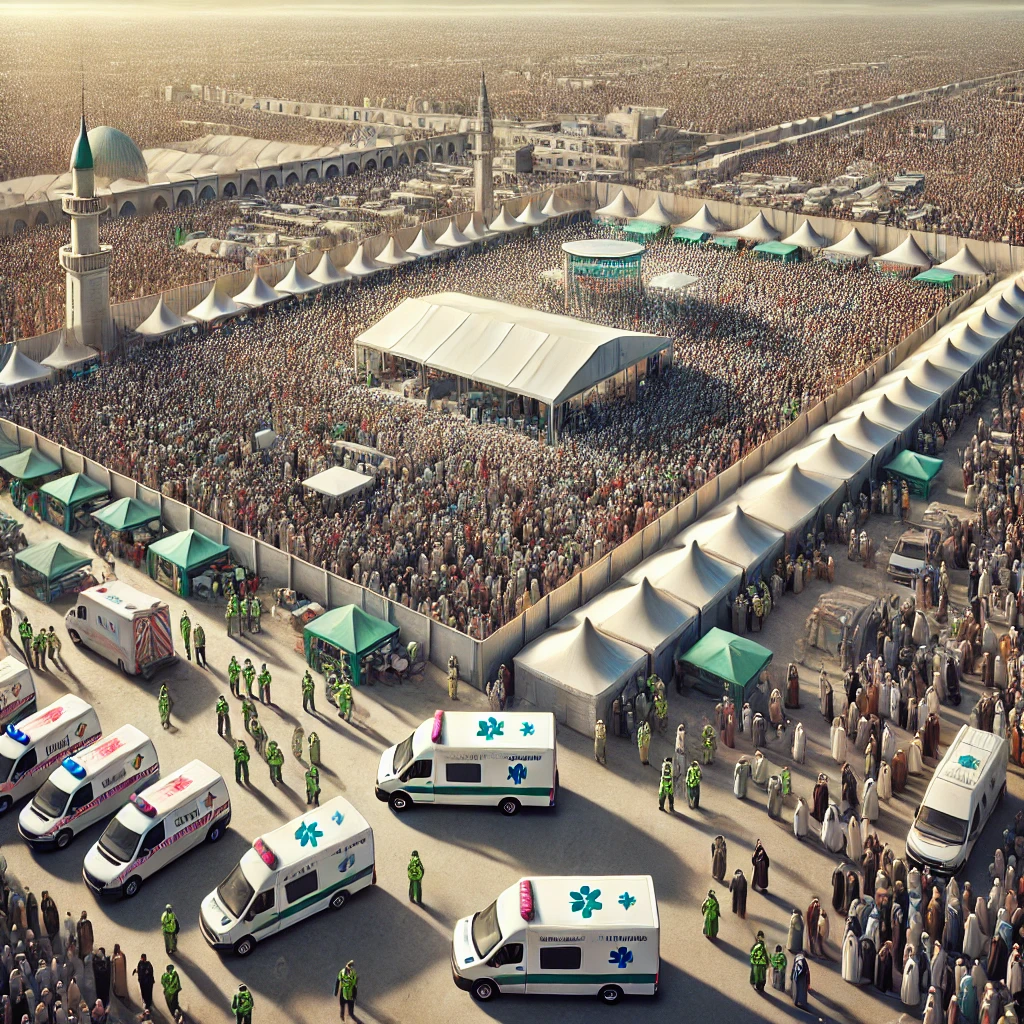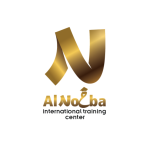Hajj, Health, and Humanity: Safeguarding Global Security in Mass Gatherings. الحج والصحة والإنسانية: حماية الأمن العالمي في التجمعات الحاشدة

About Course
Course Overview
Mass gatherings pose unique challenges to global health security, and the Hajj pilgrimage—one of the world’s largest annual religious gatherings—serves as a crucial case study in understanding these complexities. This course explores the intersection of public health, infectious disease control, emergency preparedness, and policy-making in the context of large-scale events.
Through a comprehensive analysis of Hajj, learners will gain insights into the risks associated with mass gatherings, including communicable disease transmission, environmental hazards, and logistical challenges in healthcare delivery. The course will also highlight strategies employed by health authorities, including surveillance systems, vaccination campaigns, crowd management, and international collaboration to mitigate risks and enhance global health preparedness.
Designed for healthcare professionals, public health officials, policy-makers, and scholars, this course provides practical knowledge and evidence-based approaches to managing mass gatherings safely in an increasingly interconnected world. By the end of this course, participants will be equipped with the skills to assess health risks, implement effective interventions, and contribute to strengthening global health security during mass gatherings.
Objectives
By the end of this course, participants will be able to:
- Understand the Healthcare Challenges in Hajj:
Analyze the unique public health and medical challenges associated with mass gatherings, particularly during Hajj.
Discuss the key factors contributing to health risks in overcrowded settings. - Develop Emergency Preparedness and Response Strategies:
Design and implement emergency preparedness plans tailored for mass gatherings.
Evaluate response strategies for mass casualty incidents (MCIs) and apply lessons learned from previous Hajj experiences. - Implement Effective Medical Triage and Disaster Management:
Apply triage systems suitable for mass gatherings, using Hajj as a case study.
Assess the effectiveness of different triage models in high-density environments. - Enhance General Health Preparedness and Risk Reduction:
Develop and implement health preparedness strategies to minimize risks during Hajj.
Discuss key preventive measures for common health concerns in mass gatherings. - Control Infectious Disease Transmission in Crowded Spaces:
Understand the epidemiology of infectious diseases in mass gatherings.
Apply preventive strategies, including vaccination, hygiene promotion, and surveillance systems, to mitigate outbreaks. - Conduct Risk Assessments and Vulnerability Analyses:
Perform comprehensive risk assessments for large gatherings.
Discuss vulnerable groups and develop targeted intervention strategies. - Manage Environmental Health Risks, Including Heat Stress and Dehydration:
Recognize the impact of extreme weather conditions on pilgrims.
Implement effective heat stress prevention and dehydration management strategies. - Plan Surge Capacity for Healthcare Facilities:
Develop hospital and healthcare facility surge capacity plans for mass gatherings.
Implement strategies for optimizing healthcare resources during peak demand. - Address Respiratory Illness Outbreaks and Public Health Responses:
Recognize the risks of respiratory illnesses in mass gatherings.
Implement evidence-based strategies for outbreak management and control. - Improve Cross-Cultural Communication in Healthcare Delivery:
Develop effective communication strategies to address linguistic and cultural barriers in mass gathering settings.
Foster culturally competent healthcare practices to improve patient outcomes. - Ensure Proper Use of Personal Protective Equipment (PPE):
Demonstrate appropriate selection and use of PPE for healthcare workers in mass gatherings.
Discuss PPE protocols to minimize infection risks during Hajj. - Utilize Technology and Telemedicine in Disaster Management:
Explore the role of digital health technologies and telemedicine in improving healthcare delivery during Hajj.
Apply innovative solutions for medical monitoring and emergency response in mass gatherings. - Manage Diabetes-Related Complications, Including Diabetic Foot in Mass Gatherings:
Discuss the risks associated with diabetic foot complications in large crowds.
Implement preventive measures and management strategies to reduce morbidity and complications.
Outcomes
Upon successful completion of this course, participants will be able to:
- Demonstrate a comprehensive understanding of mass gathering medicine, particularly in the context of Hajj.
- Analyze and apply best practices in emergency preparedness, disaster management, and medical triage in high-density environments.
- Develop and implement health risk reduction strategies for infectious diseases, environmental hazards, and chronic disease management.
- Apply risk assessment and vulnerability analysis techniques to enhance public health safety during mass gatherings.
- Implement hospital surge capacity plans and optimize resource allocation during large-scale events.
- Demonstrate effective cross-cultural communication skills to improve healthcare delivery in diverse populations.
- Use personal protective equipment (PPE) correctly and adhere to infection prevention protocols.
- Leverage technology and telemedicine solutions for efficient healthcare management in mass gatherings.
- Develop targeted health interventions for high-risk groups, including individuals with diabetes, respiratory illnesses, and heat-related conditions.
- Contribute to the continuous improvement of healthcare policies and emergency response strategies in mass gatherings like Haj
Course Curriculum
Introduction
-
Introduction
06:15 -
Mass gathering pharmaceutical care in Saudi Arabia
05:10 -
Introduction to Health Management in Hajj : Challenges and Opportunities
15:06 -
Quiz 1
-
MERS-CoV: warnings for pilgrims performing the Hajj and Umrah
01:46 -
Hajj Pilgrimage Emergency Preparedness and Response Strategies
17:08 -
Quiz 2
-
Mass Casualty Incident (MCI) Management in Large Gatherings Lessons from Hajj
16:33 -
Quiz 3
-
Medical Triage Systems for Mass Gatherings (A Hajj Case Study)
16:42 -
Quiz 4
-
General Health Preparedness and Risk Reduction in Hajj Settings
17:18 -
Quiz 5
-
Infectious Disease Control in Crowded Spaces (Hajj Preventive Strategies)
10:26 -
Quiz 6
-
Risk Assessment and Vulnerability Analysis for Hajj
16:00 -
Quiz 7
-
Heat Stress Management and Dehydration Prevention in Hajj Pilgrims
13:41 -
Quiz 8
-
Surge Capacity Planning for Hospitals During Hajj
14:26 -
Quiz 9
-
Managing Respiratory Illness Outbreaks in Hajj
17:02 -
Quiz 10
-
Resist the Heat: Hydration and Cardiovascular Advice for Hajj Travelers
07:05 -
Never Begin Your Hajj Without These Crucial Health Advice Pointers
09:16 -
Effective Use of Personal Protective Equipment (PPE) for Hajj Healthcare Teams
16:20 -
Quiz 12
-
Technology and Telemedicine in Hajj Disaster Management
16:06 -
Quiz 13
-
Diabetic Foot in Mass Gatherings: Risks, Prevention, and Management
24:12 -
Quiz 14
-
The Role of Nurses in Mass Gathering Medicine
19:03 -
Quiz 15
-
Emergency Preparedness for Mass Gatherings – A Nursing Perspective
20:00 -
Quiz 16
Evaluation Form
-
Activity Evaluation
-
How to Download Course Completion Certificate
01:24
Student Ratings & Reviews

-
LevelAll Levels
-
Total Enrolled455
-
Last UpdatedSeptember 9, 2025
-
CertificateCertificate of completion
